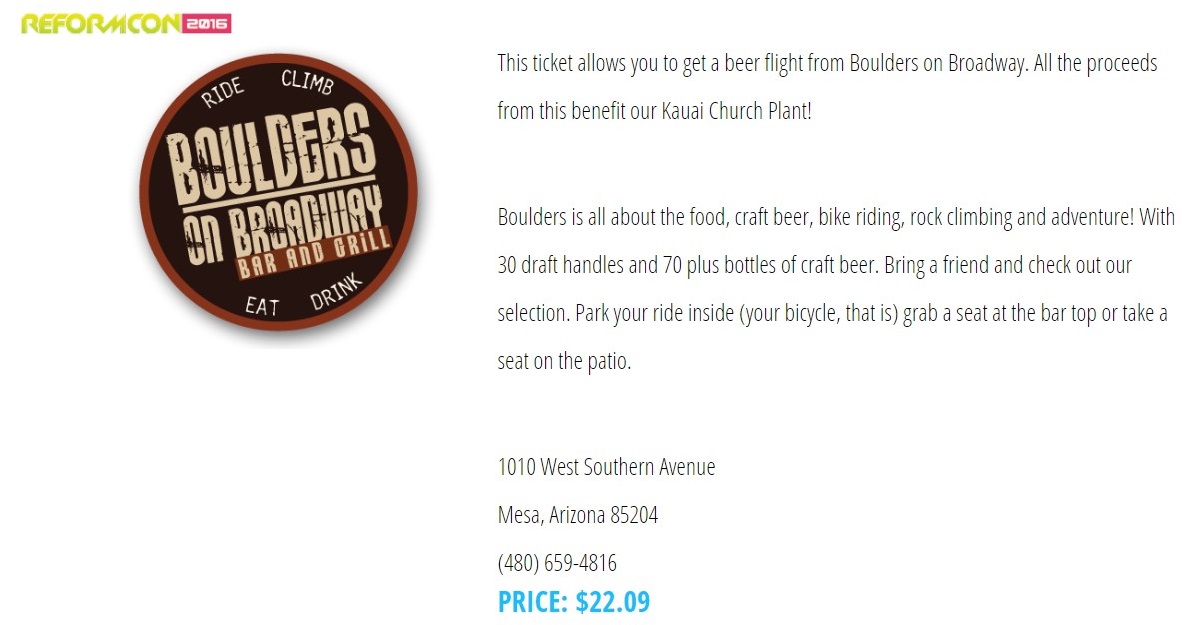 TEMPE, Ariz. — A group in Arizona that identifies itself as being under the banner of Reformed Christianity recently raised funds for a church plant in Hawaii by offering tattoos and hosting a Bible conference featuring a beer flight.
TEMPE, Ariz. — A group in Arizona that identifies itself as being under the banner of Reformed Christianity recently raised funds for a church plant in Hawaii by offering tattoos and hosting a Bible conference featuring a beer flight.
Apologia Studios, led by Marcus Pittman, which is a part of Apologia Church, led by Jeff Durbin, is behind the fundraising effort to plant a new church in Kauai.
Pittman posted a provocative live video of the tattoo fundraiser to social media on Wednesday, which he gave the questioning title “Apologia Studios Tattoo Parlor?!” In the footage, a supporter named Thad is having a Greek “Chi-Rho” symbol tattooed on his arm while in the ministry’s studio. He jokes that Pirate Christian Radio, which uses the Chi-Rho for its logo, “stole” the symbol from his tattoo.
Thad blows out a cloud of vape after inhaling from a vaporizer as he waits.
“This is actually a fundraiser for our Apologia Kauai church plant, so people of the church are donating to have another member of the church tattoo them so they can go to Kauai and we can plant a church there,” Pittman explains. “So, it’s pretty cool.”
As he reads the comments below the video, Pittman notes that a viewer characterized the activity as the “Marilyn Manson-ization of the church,” while another remarked that the fundraiser is “a lot cooler than a bake sale.”
“It’s definitely a lot cooler, for sure,” Pittman agrees.
Another supporter waiting his turn explains that he is going to be tattooed with a “dirty Trinity” design.
“It’s like one of those Zen Buddha paintings with the little Buddha brushes,” he outlines.
Pittman and Durbin, along with Les Lanphere of Reformed Pubcast, also recently hosted a conference on June 1 – 4 called ReformCon, which included a time of “talking theology over beer” at a local pub. Attendees could participate in a beer flight, which is a sampling of various beers.
“This ticket allows you to get a beer flight from Boulders on Broadway. All the proceeds from this benefit our Kauai church plant!” the website for the event outlines. “Boulders is all about the food, craft beer, bike riding, rock climbing and adventure! With 30 draft handles and 70 plus bottles of craft beer. Bring a friend and check out our selection.”
 Speakers at ReformCon included apologist James White, filmmaker Darren Doane and K. Scott Oliphant, a professor of apologetics and systematic theology at Westminster Theological Seminary. White declined to speak to Christian News Network about his appearance at the conference, and seemed surprised that there would be any issue with the activities.
Speakers at ReformCon included apologist James White, filmmaker Darren Doane and K. Scott Oliphant, a professor of apologetics and systematic theology at Westminster Theological Seminary. White declined to speak to Christian News Network about his appearance at the conference, and seemed surprised that there would be any issue with the activities.
As Pittman and Durbin are not of the belief that tattoos and alcohol are sinful, but rather part of their perceived liberty in Christ, they therefore do not find the concept of a tattoo parlor or beer flight as church fundraisers to conflict with Christianity. However, others characterize the effort as being of the world and appealing to the flesh.
“It’s very disconcerting,” Sonny Hernandez, a military chaplain and adjunct professor of theology in Arizona, told Christian News Network. “There’s several ways to do a fundraiser for a local church, and there’s a way that you could ask for funding to distribute Bibles in the local community—you can even wash cars, but tattoos as a way to raise money for a local church?”
He said that he found the fundraiser as focusing “more on theatrics than theology, and gimmicks more than the gospel.”
“I think it’s promoting outward appearance as opposed to inward [holiness],” Hernandez stated. “There’s several ways to raise money, but to do it by marking your body is not exactly what I would call a Christ-centered ministry I would ever want to be a part of.”
He explained that the concept stems from New Calvinism, which takes interest in smoking cigars, drinking alcohol and obtaining tattoos, as well as other aspects that make them appear “cool” and “relevant” in modern society.
“And it’s a new Reformed fad that is manifesting itself within American Christianity, and it’s unbiblical,” Hernandez said.
“The message of Scripture is about holiness, having a contrite heart, and being a Christ-centered model—to be like Christ as Ephesians 5:1 tells us,” he explained. “And I just don’t think those methodologies and those practices are commensurate with the testimony of Scripture.”
Editor’s Note: To view the cited video in its entirety, please click here.
Become a Christian News Network Supporter...


